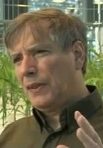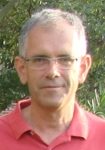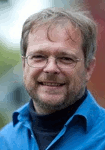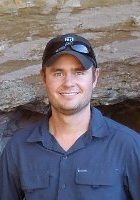Invited Speakers (Confirmed)

Ulrich Schurr, Forschungszentrum Jülich, DE
Plant scientist with a wide background in plant ecology, physiology, molecular biology and plant breeding. In 1991, he received Ph.D. from University Bayreuth, Germany and became a group leader at the Institute for Botany, University Heidelberg, Germany. He is also the founding director of the Bioeconomy Science Center (BioSC), the coordinator of the German Plant Phenotyping Network (DPPN), and the European Plant Phenotyping Network (EPPN). Currently, he is a Chairman of several scientific boards namely European Technology Platform Plant for the Future, the International Plant Phenotyping Network (IPPN e.V.), and the ESFRI-project EMPHASIS to develop a European Infrastructure for Plant Phenotyping.

François Tardieu, INRA-Montpellier, FR
He is Agicultural Engineer from Institut National Agronomique Paris-Grigon (INA PG). In 1984 he received PhD in Ecophysiology. He was Director of the Joint Research Unit for Ecophysiology of Plants under Environmental Stress (LEPSE) from 1993 to 2003. From 2002 to 2005 he was Deputy Head of INRA's Environment and Agronomy Research Division, in charge of the ecophysiology programme. Since 2014 he is a team leader at LEPSE, coordinator of the EU FP7 project LCP DROPS (2010-2015), coordinator ANR-IA French Plant Phenomic Network (Phenome), president of InterDrought. He was winner of the 2014 Agricultural Research Award for Scientific Excellence. Since 2015 he is co-chair of ESFRI-project EMPHASIS.

Jose Luis Araus Ortega, University of Barcelona, ESP
Received his Ph.D. in Plant Physiology (1983) from the University of Barcelona, and a Technical Agricultural Engineer (1982) from the Catalonian Polytechnic University. He has worked at the Smithsonian Tropical Research Institute (Panama), the International Maize and Wheat Improvement Center (CIMMYT, Mexico) and other institutions. From 2000-2003 he was a National Seconded Expert at the Directorate General for Research of the EU (Brussels) and from 2006-2008 was Principal Scientist at CIMMYT. Dr. Araus is coauthor on more than 180 publications in SCI and SSCI Journals, with near 8500 citations. The main plant species targeted have been cereals, focusing on photosynthetic metabolism, uses of stable isotopes, the mechanisms of plant adaptation to abiotic stresses, paleoreconstruction of the agricultural conditions in the antiquity, and developing phenotyping techniques for crop breeding.



Uwe Rascher, Forschungszentrum Jülich, DE
Plant ecophysiologist with extensive research, group leading, and management experience. In 2001 he received Ph.D. from University of Technology, Darmstadt, Germany. Currently is the Head of department ‘Ecosystem Dynamics’ at Institute of Plant Sciences, IBG-2 (Forschungszentrum Jülich). Professor at the University of Bonn. Research in plant physiology, biogeochemistry, ecology, global climate change and remote sensing, resulting in 86 peer-reviewed research articles and reviews. Expert in characterizing photosynthesis using chlorophyll fluorescence, hyperspectral reflectance, gas-exchange, remote sensing and image analysis techniques. Interdisciplinary work using remote sensing of photosynthesis to better quantify and model plant mediated exchange from the leaf to the region, to parameterize vegetationatmosphere exchange models and to develop new concepts for field phenotyping.
Jörg-Peter Schnitzler, Helmholtz Zentrum München, DE
Plant Physiologist with strong background in biochemistry, metabolomics, terpenoids, molecular ecology, and plant stress physiology with actually more than 130 peer-reviewed publications. After his PhD at the University of Tübingen in 1992, he was postdoc for 2 years at the Helmholtz Zentrum München, before he became group leader at the Fraunhofer-Institute for Atmospheric Environmental Research (now Karlsruhe Institute of Technology) at Garmisch-Partenkirchen, starting his research on the regulation and bio/ecological functions of volatile organic compounds (VOCs). Adjunct professor at the University of Freiburg. Since 2010 he directs the ‘Research Unit Environmental Simulation’ at Helmholtz Zentrum München that focuses on the analysis of plant-microbe interactions and plant phenotyping under highly controlled environmental conditions. He is member of the German (DPPN) and European Plant Phenotyping Network (EPPN), and partner in the ESFRI-project EMPHASIS.
On Behalf of Xavier Sirault
Michael Schaefer, PhD, Australian Plant Phenomics Facility, HRPPC/Canberra, AU
Undergraduate degree in Science 2007 and went on to complete PhD in Applied Physics in 2012 with thesis titled “Advanced optical sensing of biomass in plant canopies”. In 2012, he started a joint postdoctoral research fellow position with the University of New England and CSIRO in Canberra, this position is seated within the Terrestrial Ecosystem Research Network’s (TERN) AusCover Remote Sensing Group. He has worked on projects ranging from remote sensing using MODIS data to validate continental leaf area index products through to on the ground vegetation monitoring field work carried out at many locations around Australia. This work has lead to working primarily with terrestrial and airborne LIDAR instruments and being the custodian of CSIRO’s Dual Wavelength Echidna Lidar (DWEL), one of only two such instruments in the world.
